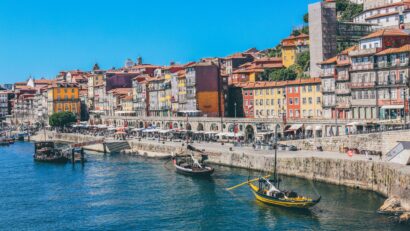Inflation is driving more and more unexpecting people into poverty. The Austrian People’s Party (ÖVP) and the Greens nevertheless refuse to take action against the skyrocketing prices. The Portuguese government shows that there is another way: it already capped rents last year. Recently, Portugal has started renting out vacant flats and suspended VAT on 44 basic foodstuffs.
Between 2017 and 2022, rents in Portugal increased by 42 percent. The country is one of the poorest in Western Europe. Although the government only raised it in December, the minimum wage is just 760 euros a month. More than half of workers earn less than 1000 euros per month.
The government of the socialist Prime Minister António Costa has therefore limited rent increases. Landlords can increase them by a maximum of two percent. Costa’s next step is to put about 730,000 vacant flats on the market. If a flat remains unoccupied for more than two years, Portugal will have it forcibly rented out.
Putting vacant flats on the market
Owners of vacant flats receive a rental offer from the municipality, to which they must respond within ten days. If they do not accept the offer, they have another 90 days to rent out the flat or use it themselves. If the owners continue to do nothing, “municipalities proceed with the compulsory leasing”, according to the planned law. In this case, the municipality manages the flat and, if necessary, carries out renovation work to make it habitable. They then put the flats on the market for five years at low rents. According to the government, rents may not exceed 35 per cent of the family income. The income – minus the renovation costs – is paid out to the owners. There is an exception for properties that registered as tourist enterprises or local accommodation establishments. Flats that are currently being worked on or are about to be sold are also excluded.
Austria: ÖVP & Greens fueling inflation instead of relieving the burden on tenants
In Austria, the situation is different. Here, too, the government discussed a rent brake at the end of February. In the end, however, the ÖVP and the Greens opted for a housing cost subsidy. While 250 million euros will be paid out as a one-time payment, the increased rents remain the same or rise further in the future. Moreover, the housing cost subsidy ends up back with the landlord after the rent payment. The inflation rate in Austria in February was 11 per cent. Tenants not only have to pay higher prices for energy and electricity like everyone else, but also higher rents.
Gabriel Felbermayr, head of the Economic Research Institute (Wifo), also criticises the government’s approach. “I thought it was clear by now that more and more new cash transfers can cushion social hardship, but do not dampen inflation, instead they even fuel it”. The state does not have these 250 million euros and has to borrow them on the capital markets; if you put new money into the economy, it drives up prices, Felbermayr said. In his view, the rent brake was a way to get out of the price spiral.
Portugal suspends VAT
The government in Portugal on the other hand, is not only putting vacant flats on the market, it is also curbing rising inflation by suspending VAT. For the time being, it is suspending VAT on 44 basic foodstuffs for six months. If necessary, it wants to extend this period. This measure is part of an agreement with producers and retailers to stabilize prices as soon as possible. The government also foresees financial support for farmers and livestock in this framework. The suspension of VAT will make bread, eggs, meat, oil, yoghurt, fish and cheese, among other things, cheaper and more affordable for Portuguese households.
This work is licensed under the Creative Common License. It can be republished for free, either translated or in the original language. In both cases, please cite https://neuezeit.at / Kasija Milošević as the original source/author and set a link to this article on Scoop.me. https://scoop.me/portugal-vacant-flats-vat/
The rights to the content remain with the original publisher. Läs mer…


